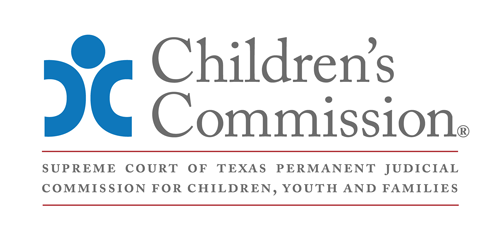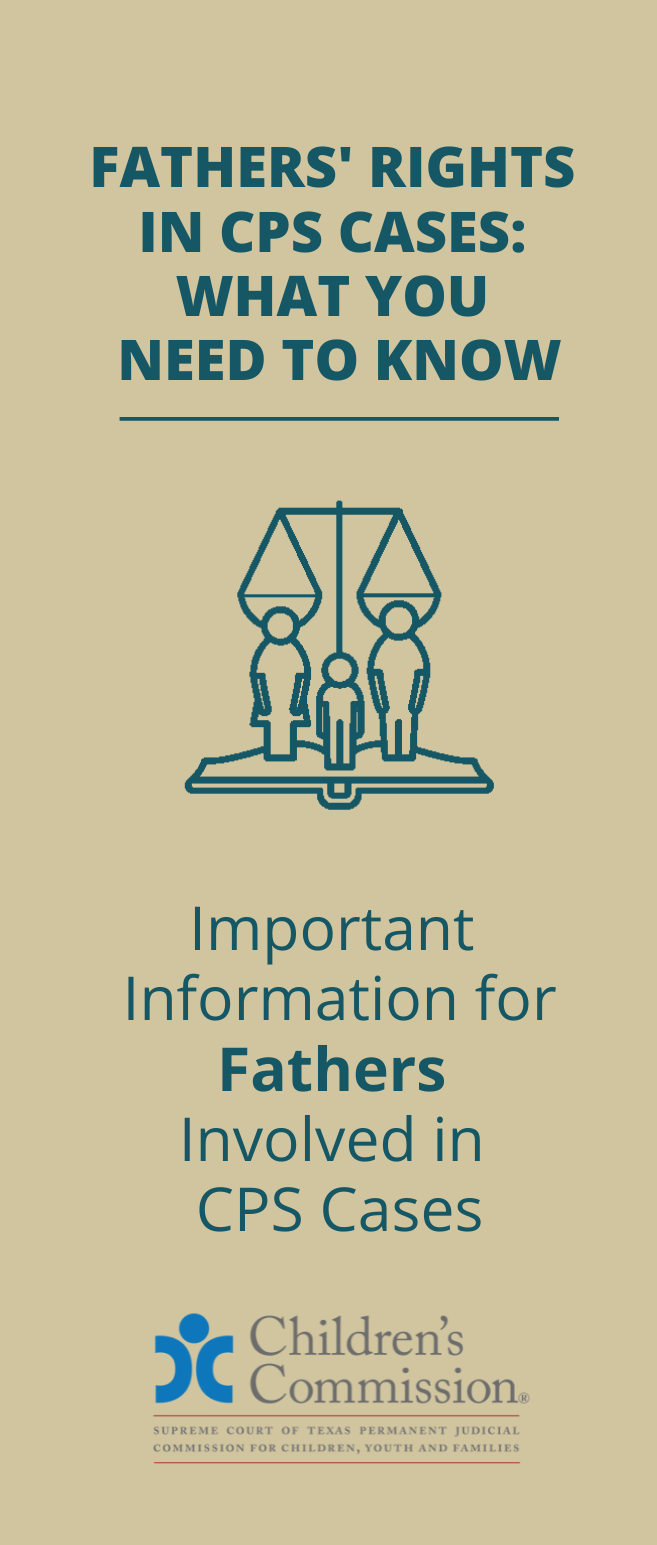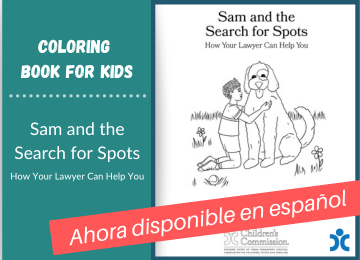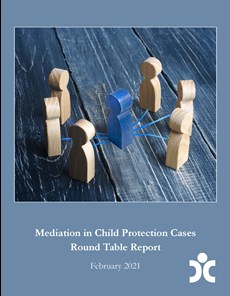For more information about current projects, please visit the Parent Resources Workgroup webpage.
The Parent Resource Guide
The Parent Resource Guide is a handbook designed to help parents understand the Texas child welfare system, their roles and responsibilities when involved in a Child Protective Services case, and the roles and responsibilities of others. The guide is current up to the 86th Legislative Session.
The 2020 Parent Resource Guide is available below in English and Spanish:
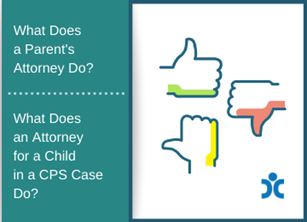
The following brochures explain the responsibilities of an attorney for a parent or child towards their client and how to resolve issues between the attorney and the client. The brochures are intended to be shared with parents and foster parents in child welfare cases and may be helpful for judges to have available in the courtroom and/or a courthouse library or information center.
The Family Helpline
In 2017, the Children’s Commission partnered with Access to Justice and the Children’s Justice Act to fund the Texas Legal Services Corporation to establish the Family Helpline for Strong Families and Safe Children (“Family Helpline”), which provides easily available, statewide access for parents, family members, and community members to basic information, education, and resources addressing issues facing parents and caregivers as they relate to child welfare law including:
- Child Protective Investigations;
- The provision of Family-Based Safety Services;
- Safety Plan and Parental Child Safety Placements;
- Chapter 34 non-parent agreements;
- Termination of parental rights;
- Custody, access, and visitation;
- Service plans;
- The court’s role in conducting hearings and oversight;
- The right to legal counsel;
- Non-offending parents, minor parents, and incarcerated parents;
- Survivors of family violence;
- Intergenerational issues;
- Reinstatement of parental rights; and
- Other variations of these situations.
The Family Helpline is staffed by experienced attorneys who offer callers live support in a one-on-one exchange. TLSC employs attorneys with child welfare case experience who can offer callers legal information and education and refer to resources such as the Children’s Commission’s Parent Resource Guide, but not offer legal advice or establish an attorney-client relationship with the caller.
For more information on the Family Helpline, visit TexasLawHelp.org
